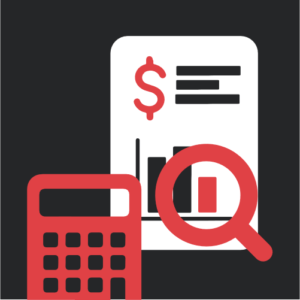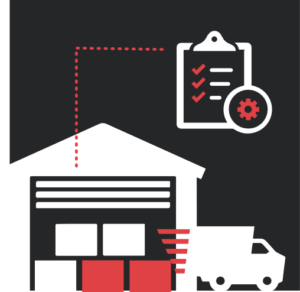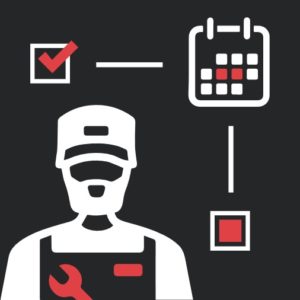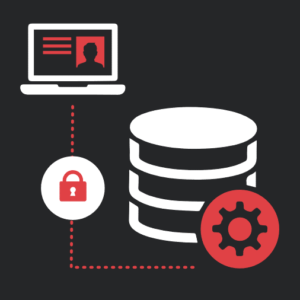Don’t miss out!
Get the latest resources sent directly to your inbox.
Despite the numerous technological advancements in dealership management system over the last 30 years, many RV, marine, and trailer dealers don’t have an industry-specific, fully-integrated system for managing their business.
Their current systems tend to cover only a small portion of their business and are typically not made with their industry in mind. That’s because many systems are designed to be “generic” – to cover only one specific business area, such as accounting, while targeting as many businesses as possible.
As a result, they don’t have enough features to satisfy all the needs of one particular business.
In our experience, the most common reason why so many dealers don’t have a proper industry-specific system is that they don’t know how to properly evaluate the solutions and vendors available to them. So, they opt for the more generic options.
To help you and other dealers in the same position, we put together a list of a good DMS (dealership management system) for business that helps avoid any potential headaches down the road.
 When shopping for a system, your number-one priority should be its overall usability. You want a system that’s easy to learn and was built from the ground up with your industry in mind.
When shopping for a system, your number-one priority should be its overall usability. You want a system that’s easy to learn and was built from the ground up with your industry in mind.
So, when looking at various systems, make sure that it’s able to do the following:
If the system you’re looking at is missing any of the features above, then at its core, it’s not a system for your business. Look elsewhere.
 If you’re used to QuickBooks or any other proficient accounting software, you probably wouldn’t want a system that’s a step back. At the very least, a system should be able to seamlessly integrate with your existing accounting system for ease of use.
If you’re used to QuickBooks or any other proficient accounting software, you probably wouldn’t want a system that’s a step back. At the very least, a system should be able to seamlessly integrate with your existing accounting system for ease of use.
With that in mind, here’s what a decent-enough dealership management system should be able to do when it comes to accounting capabilities:
What you see above is the bare minimum in terms of what a decent accounting module should have, so if the system you’re looking at is missing any of these, then it’s probably not right for you.
 A good dealership management system should allow your sales team to easily manage their pipeline and customer interactions – to maximize the amount of closed deals.
A good dealership management system should allow your sales team to easily manage their pipeline and customer interactions – to maximize the amount of closed deals.
Make sure the system you’re looking at can do the following:
Given how vital salespeople are to any dealership, a system that leaves them without any tools is not worth your time.
 Parts management is another vital component of any competitive dealership system. It should make it easy for your employees to order and track parts at all times to ensure maximum profitability.
Parts management is another vital component of any competitive dealership system. It should make it easy for your employees to order and track parts at all times to ensure maximum profitability.
With that in mind, a proper system should be able to do the following:
In the end, the lack of a parts management functionality is yet another indicator that the system wasn’t designed with your business or even a dealership in mind.
 Another vital component of a proper dealership system is service management. This functionality can significantly boost the profitability and efficiency of your service department, so you should take its absence into account when looking at various systems.
Another vital component of a proper dealership system is service management. This functionality can significantly boost the profitability and efficiency of your service department, so you should take its absence into account when looking at various systems.
Here’s what a decent service management module should be able to do:
Without any of these features, your service department may never live up to its full potential. Worse yet, it can earn a poor reputation over time since other dealerships may step up and offer better service than you.
 Once you’ve established whether the system has the features you need or not, you should take a long and hard look at the IT support offered by the vendor – because it can easily make or break the system, no matter how capable it may seem on the surface.
Once you’ve established whether the system has the features you need or not, you should take a long and hard look at the IT support offered by the vendor – because it can easily make or break the system, no matter how capable it may seem on the surface.
Here’s what you should be watching out for when examining a dealership vendor’s IT services:
If you believe the vendor’s IT support is subpar, consider looking elsewhere, because this may have a huge impact on your business down the road – probably when you least expect it.
 Aside from decent IT support, a vendor should also offer good customer support and training. After all, what good is a system if there’s nobody there to help you use it?
Aside from decent IT support, a vendor should also offer good customer support and training. After all, what good is a system if there’s nobody there to help you use it?
So, when examining a vendor’s support and training options, look out for the following:
If you’re paying big bucks for your system, then you should have all the tools you need to make proper use of it. Otherwise, there’s no need to bother with it.
 Finally, once everything checks out, take a solid look at the vendor itself. Has it been around long enough? Is it going to stick around for decades into the future? You should know the answers to all of these questions before signing any contracts.
Finally, once everything checks out, take a solid look at the vendor itself. Has it been around long enough? Is it going to stick around for decades into the future? You should know the answers to all of these questions before signing any contracts.
When examining the vendor, make sure:
In the end, a vendor should be a company that you trust. If it gives you even one reason to doubt it, then you should likely look elsewhere.
As you can tell, there are plenty of things to consider when shopping for a dealership management system. That’s why we recommend that you come up with a detailed checklist that you can use every time you want to determine whether a system meets your specific criteria or not. To get started, download our free checklist and go from there!
Get the latest resources sent directly to your inbox.